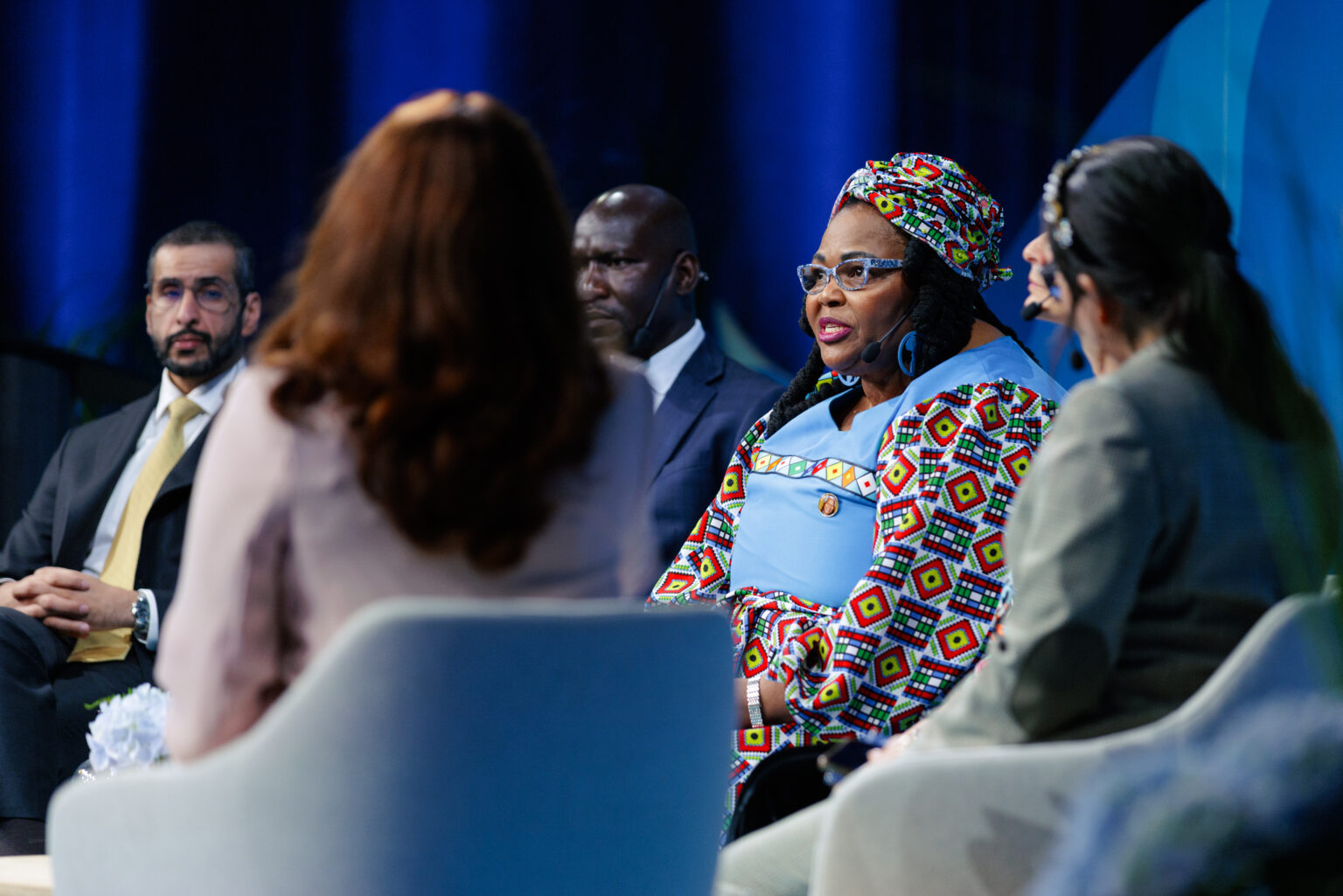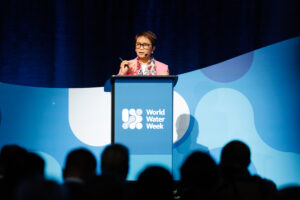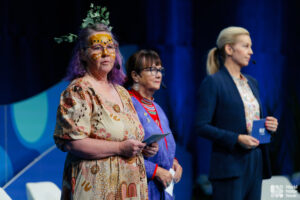“Water must no longer be treated as a secondary issue — it must become as central as energy.”
From recognition to accountability
The discussions in 2025 underscored a growing consensus: water is not just one sector among many, but the system that binds them together. When rivers dry, cities flood, or aquifers collapse; entire economies and societies are at risk. Yet global climate frameworks still treat water as a downstream concern, rather than the starting point of resilience.
Speakers called for water to be fully embedded in global climate governance, including the Global Goal on Adaptation, and for stronger accountability to track progress. Without measurable outcomes, as Henk Ovink, Co-Chair of the Global Commission on the Economics of Water, reminded us, “we risk creating a flower garden of voluntary commitments that bloom for a season and fade.” His words underscore the importance of the COP30 Action Agenda in Belém — to move from scattered pledges to coordinated, accountable action that embeds water across climate and development goals.

The urgency is clear. The hydrological cycle, disrupted by rising temperatures, deforestation, and pollution, underpins every adaptation and mitigation effort. Tackling water resilience systemically, across geographic, sectoral, and political boundaries, is key to replacing fragmented responses with integrated solutions. Without water security, no country can achieve climate security.
“We must treat water not as a government issue but as a societal one.”

The expectations for Belém
As the world prepares for COP30, expectations are high for countries to move beyond pledges and anchor water as a political priority across national climate strategies, such as the Nationally Determined Contributions and National Adaptation Plans due for submission earlier this year. The Amazon, where COP30 will take place, symbolizes both the vulnerability of our interconnected systems and the solutions that emerge when people, nature, and policy align.
Speakers at World Water Week emphasized that inclusion and justice are central to credibility. Indigenous leaders in particular called for their knowledge to guide decision-making on water and climate.
“Indigenous Knowledge is science, not folklore. Inclusion must move from passive participation to active partnership. ”
This human dimension shows why water must be central to climate action. It connects global goals with the realities faced by communities and ecosystems, reminding decision-makers that resilience is ultimately measured in lives and livelihoods.
Looking ahead
COP30 offers the chance to make the shift from recognition to results, from symbolic commitments to measurable, lasting change. As Retno L.P. Marsudi, UN Special Envoy on Water, put it, “There’s no need to reinvent the wheel — only to get the wheels moving.”

Without resilient water systems, the goals of the Paris Agreement will remain out of reach. Water drives mitigation, underpins adaptation, and sustains resilience. There can be no green energy transition, food security, or sustainable cities without it. Belém must be the moment the world overcomes the main barriers to effective adaptation — fragmentation and lack of integration across sectors. Only then can water move from the margins of the climate agenda to its foundation — the system through which every commitment must flow.
From Stockholm to Belém, that is the expectation the global water community now carries forward.
* Missed NDC deadlines threaten Paris Agreement goals










